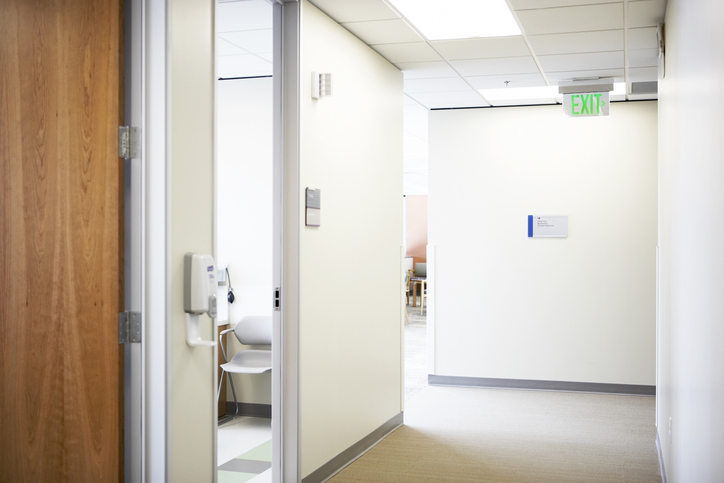
Nearly all medical practices have taken a financial hit from Covid-19. For many of them, that’s already led to furloughs and layoffs, according to a survey released Tuesday by the Medical Group Management Association (MGMA).
In total, 48% of practices reported that they had experienced furloughs and 22% had experienced layoffs. One Mississippi-based pain management practice said it had laid off most of its staff, except for five people.

Transforming Clinical Content with Ambient & Generative AI
Sheila Bond, MD, talked about the latest trends regarding integration of AI in healthcare.
“Not only has 70% of our revenue disappeared, but our physicians are still working every day, exposing themselves to risks, taking care of patients, and taking care of their employees by continuing to pay them while they have taken over a 50% pay cut,” an Alabama-based independent anesthesiology practice wrote in response to the survey.
The survey included responses from 724 medical practices between April 7 and 8. Roughly three-quarters of them were small practices with less than 50 full-time physicians. The majority reported slowing patient volumes, as practices are required to cancel elective procedures to conserve personal protective equipment (PPE). Patients have also become wary of going to medical facilities during the pandemic.
In total, survey respondents reported a 55% decrease in revenue and a 60% decrease in patient volume since the beginning of the pandemic. For example, one independent gastroenterology practice reported the number of weekly endoscopy procedures it performed dropped sharply from 300 per week to eight per week.
On top of the slashed revenues, practices also said they faced growing expenses, as they roll out telehealth capabilities and pay inflated prices for masks.

Integrating GLP-1s: How Berry Street is Redefining Nutrition Care
Richard Fu details the company's approach to nutrition therapy and strategy for patients using GLP-1s.
“In addition to the decrease in volume and revenue, there are increases in expenses related to COVID, such as technology to support telehealth needs and remote providers/staff and PPE,” wrote a Texas-based independent rheumatology practice. “… procedure masks are now $1 or more per mask, and we are using large quantities when we rarely used to use any.”
If conditions don’t improve next month, MGMA expects the number of physician practices cutting staff will continue to increase. 60% are expected to report staff furloughs and 36% are expected to report layoffs by May.
However, provider groups will get some relief from the CARES Act stimulus bill that was passed last month. Of the $100 billion that was set aside for healthcare providers, $30 billion has been distributed to hospitals and providers based on the amount of Medicare fee-for-service payments they received last year. In a guidance released last week, MGMA said it expects future distributions will focus on providers with lower shares of Medicare patients or who predominately serve Medicaid patients.
Photo credit: Thomas Northcut, Getty Images






